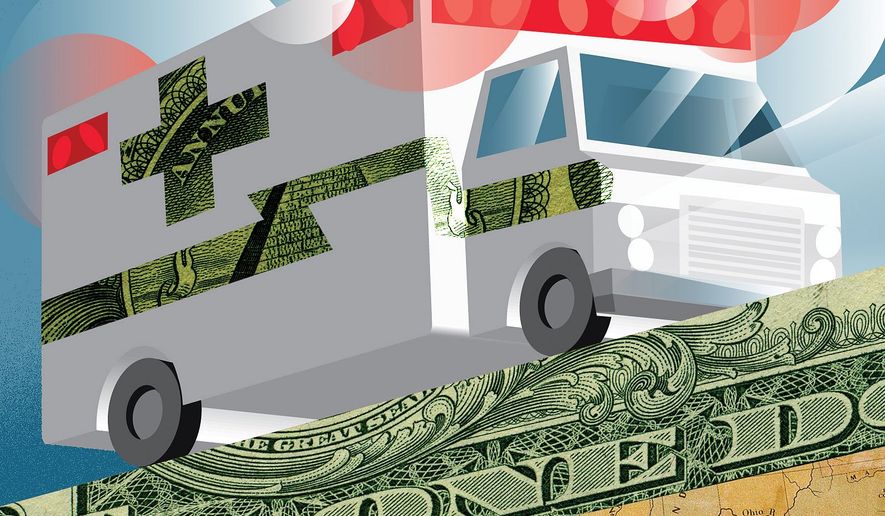
Why Washington should rush more economic aid to the states
by Peter MoriciANALYSIS/OPINION:
The economy is in more dire straits than Washington politicians behave, and they need to put aside their partisan agendas and fencing on Twitter to save it.
The Labor Department reported 20 million jobs lost in April, raising unemployment to 14.7 percent, and government statisticians believe the chaos caused serious undercounting. Adding idled workers still receiving payments from employers but incorrectly classified as employed, and those shut in, unable to look for work and hence not counted in the labor force, the jobless rate jumps to 23.5 percent.
The survey was conducted in mid-April, but millions more filed for unemployment benefits during the weeks that followed, putting the real unemployment rate well above the 24.9 percent Great Depression peak.
Most visible are lost jobs in restaurants, airlines, non-emergency health care and entertainment, but a second wave is unfolding along the supply chain. For example, Boeing and GE’s aircraft engine division are girding for depressed air travel for several years, and cleaners, caterers, other business and child care services are losing customers.
Half of small businesses may be closed permanently, and two in five displaced workers will never return to former jobs. Many newspapers are suffocating from lost ad revenue.
Both political parties have been eager to exploit the crisis to stuff their long-term ideological agendas into stimulus packages — such as lopsided rules favoring unions for Democrats and tax breaks often favored by Republicans.
Aid is arriving too late and with too many strings for quick distribution. Means testing slowed stimulus checks, and onerous bureaucratic conditions forced many small businesses to pass on grants and loans.
All the bickering and bargaining delays the fire brigade while the economy is burning.
The latest is the $500 billion in fiscal assistance requested by state governors. House Democrats painstakingly wasted time drafting a $3 trillion bill that includes sweet spots rich in Democratic votes and will result in weeks of wrangling with Senate Republicans. Senate Majority Leader Mitch McConnell warns no bill gets past the Senate without tort reform. President Trump wants aid tied to sanctuary city policies.
A package will emerge because neither party wants to bear blame for draconian school spending cuts but not before a lot more carnage in the economy.
Earlier relief packages sent $150 billion to the states, but most of that was for extraordinary COVID-19 expenses. The recession has cost the states and municipal governments at least $270 billion in lost sales and income tax revenues, as well as from excise taxes on theater tickets, hotels and other services.
Municipalities are cutting back on garbage collection and other basic health and safety services. State and local governments have shed 1 million workers — and that’s before they finally come to terms with slashing budgets for the second half of this year and next.
State and local governments still employ 19 million — more than manufacturing and construction combined. To avoid Armageddon, Congress should quickly pass a plain vanilla $500 billion aid package and let the governors sort it.
Instead, as with the $3 trillion in packages that sent payments to households, small businesses, the airlines and others, Congress and the administration will burden the bill with lots of conditions and politically targeted complexity, the money will arrive too late to save millions of jobs. The public schools — trying terribly hard to protect students, faculty and staff by relying more on digital learning solutions — simply won’t have the cash needed to function effectively.
The governors have given conservative lawmakers and Mr. Trump good cause to stiff them. New York Gov. Andrew Cuomo faced down President Trump regarding authority to reopen New York’s economy and formed a coalition of Northeastern states but is now calling for an active federal partner in Washington to address his state’s financial problems.
Gov. Gavin Newsom has repeatedly asserted California is a nation state. Fine, let Sacramento borrow in the bond market and raise taxes further, and see what that does to its credit rating and how many folks with professional skills — other than tech magnates residing in gated estates — still want to live in his paradise for the homeless and illegal immigrants.
As for Mr. McConnell, it’s the pique of indifference to suggest that states and municipalities look to bankruptcy and higher taxes. States are as critical to the national economy, and nothing would slow solutions more than a trip through creditor reorganization, litigation and more taxes.
Responsibility for the national economy still resides along Pennsylvania Avenue between the Oval Office and Capitol Dome.
• Peter Morici is an economist and business professor at the University of Maryland, and a national columnist.